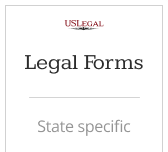Full question:
My husband and I took in an 18 year girl in January, 2010. Her grandparents had sole legal and primary custody of her until further order of court. She did not get along with them, and left two days after turning 18, and moved in with us. The girl spoke with the family court administrator at the court house where the custody order took place and they told her that she was 18, and on her own and that could do what she wanted at this point. Now she is filling out paperwork for college and applying for grants and aide from FAFSA and PHEAA. She did not file for emancipation through the court system when she left because she was 18. In order for her to be eligible for grants independently, would she have to have filed for emancipation when she was 18, or not because she is legally an adult at 18. We are her default guardians until she finished high school in next month, and have signed a notarized #1303 form for the school district until she finished high school. She is just living with us independently, and we will not be paying for her college in any way.
- Category: Minors
- Subcategory: Emancipation of Minor
- Date:
- State: Pennsylvania
Answer:
Eligibility for financial aid is partly determined by the Expected Family Contribution (EFC). The financial aid office at your school will use your EFC and other information to determine the amount of financial aid for which you are eligible. A financial aid award is determined by each school based on your eligibility and the cost of attendance for your program. All the data used to calculate the EFC come from the information the student provides on the FAFSA. A minor who is currently emancipated by court order doesn't need to provide parental financial information and has independent status. The CPS analyzes the information from the FAFSA and calculates the EFC. The EFC measures the family’s financial strength on the basis of the family’s income and assets. The EFC formula also takes into account the family’s expenses relative to the number of persons in the household and how many of them will be attending college during the award year.
Regardless of how much support a student actually receives from his or her parents, he or she is still considered a DEPENDENT student for financial aid purposes UNLESS at least one of the following criteria is met:
1.For the 2010-11 school year, the student was born before January 1, 1987; or
2.the student is married; or
3.the student has a child or children who receive more than half their support from the student; or
4.the student has dependents (other than a child or spouse) who receive more than half their support from the student, and who also live with the student; or
5.the student is enrolled as a graduate or professional student (pursuing a master’s degree or doctoral degree); or
6.the student is a qualified veteran of the U.S. military, or currently serving on active duty in the U.S. armed forces for purposes other than training; or
7.the student is an orphan (both parents deceased) or ward of the court or in foster care at any time after turning age 13, or was a ward of the court until age 18; or
8.the student is/was in legal guardianship; or
9.the student is/was an emancipated minor; or
10.the student was an unaccompanied youth who was homeless or at risk of being homeless on or after July 1, 2009; or
11.the student has special and unusual extenuating circumstances that can be documented for his or her college financial aid administrators, who may then request a “dependency override” on the FAFSA application. (Note: Exceptions are granted very rarely and only in extreme cases.) Students should contact the financial aid office at the school they will be attending for additional information.
Applicants are advised to complete the FAFSA as an independent student if you have a copy of a court order that you are in a legal guardianship. The court must be located in your state of legal residence. If the court order is no longer in effect and you are still a minor, or if it was not in effect at the time you became an adult, you must complete the FAFSA as a dependent student.
Please see the information at the following links:
http://www.nasfaa.org/publications/2009/anfosteraid033109.html
http://studentaid.ed.gov/students/attachments/siteresources/66.pdf
http://www.fafsa.ed.gov/FOTWWebApp/fotw1011/WorksheetServlet?locale=en_US&wstype=WSDEP
http://blog.studentloannetwork.com/2007/02/05/eligibility-for-independent-student-status/
This content is for informational purposes only and is not legal advice. Legal statutes mentioned reflect the law at the time the content was written and may no longer be current. Always verify the latest version of the law before relying on it.




